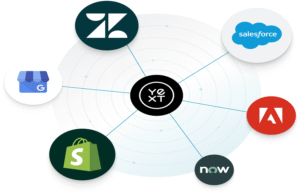Five Accounting Tips for Small Business Owners
3 min read
Accounting is the process whereby one analyzes and keeps track of their financial records. Accounting services for small businesses require the collection of invoices, payrolls, receipts, tax payments, and financial records for all those documents.
Up-to-date financial accounts Evolved, LLC play a major role in the increase in business success and growth. Some of the business accounting tips include the following:
- Separating the Business and Personal Expenses
It is essential to separate your business bank account from your one to avert the confusion that comes with intertwining business transactions and personal funds. This easily enables the gathering and verification of operating costs for tax deductions, and also keeping business funds on the side which in return limits the owner from accessing it hence becoming a potential liability by immersing business debts.
It is advisable to avoid the use of your credit cards for business expenses by getting a business credit card. This helps in establishing your business credit score, while it ensures that your credit score is not affected.
- Using a Bookkeeping Software
The proper tracking of expenses and income is crucial for a good accounting procedure. Using bookkeeping software plays a major role in minimizing consuming and tedious manual activities such as sorting expenses, tracking and sending customer invoices, and paying employees. The use of accounting software also reduces the chances of errors.
- Creating a Budget
For business growth and success, creating a budget for the projected expenses and revenue and counter-checking it against the actual results to see if it tallies. Budgeting aids small businesses in analyzing the operation costs to boost cost efficiency and also establish potential expansion opportunities.
- Safe Keeping Detailed Records
Safe keeping detailed records increase the chances of success for small business owners. Detailed records are essential during the tax period, by documenting the tax-deductible expenses.
The government requires small businesses to maintain records for a minimum of two years, but tax accountants often recommend seven years. The use of accounting software services makes work easy by scanning receipts, categorizing, and keeping an online bookkeeping system.
- Understanding State Tax Laws
Small business owners must be conversant with the state tax laws in which they operate or transact their business. Physical stores, offices, or warehouses in each state require the collection of sales tax whether they sell the goods directly, by drop shipping, or by using a fulfillment service.
E-commerce business owners who operate in various states are advised to consult a tax consultant regarding the setting up of the program which meets the state laws.
- Managing Cash Flow
One of the merits of business success is managing cash flow. Ensuring that there is seamless cash flow in a business is directly relative to how much more there is needed to immediately pay expenses.
The creation of a cash flow statement in a small business is important to access the timing of money in and money out. Some of the ways to improve the cash flow in your business are through, credit lines, timing, rainy day funds, and wiggle room.
Conclusion
Proper planning ahead for taxes and sticking to deadlines ensures business growth and success as late payment of estimated taxes results in fines, overdue taxes, and interest charges.







